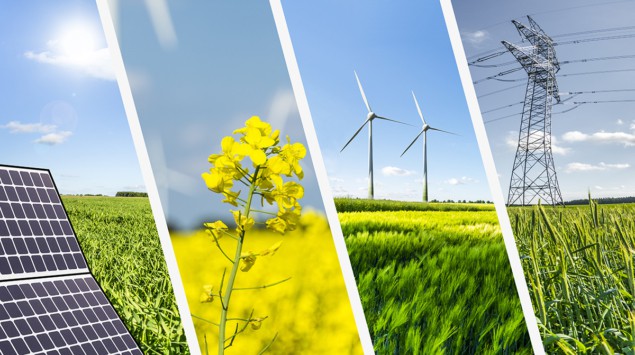
As the UN climate climate summit (COP 25) enters its final scheduled day on 13 December, global energy markets have taken centre stage in Madrid. One of the key goals is to reach international agreement around article six of the 2015 Paris accord – putting a price on carbon and restructuring the way carbon is traded. But away from the negotiating tables, there has been no shortage of prominent voices sharing their vision for the future of global energy.
On 10 December, former US vice-president Al Gore delivered an 80-minute speech, lamenting the failure of the international community to curb greenhouse-gas emissions despite scientific consensus on the impacts of climate change. Gore, who won the Nobel Peace Prize in 2007, was positive, however, about the speed at which nations are investing in renewable energy at the expense of fossil fuels.
“If you are tempted to believe that we simply don’t have the will to survive that we simply don’t care what happens to our children and future generations, that we simply don’t have the will to act – remember that the will to survive and the will to act are themselves renewable resources,” Gore told delegates in Madrid.
A subprime carbon bubble?
Speaking about investment markets, Gore spoke of a “subprime carbon bubble”, comparing the current fossil-fuel industry to the subprime mortgage market in the US – the collapse of which contributed to the global financial crisis of 2007–08. Gore says that fossil-fuel companies have seen a decline in financial returns greater than 10% over the past three years, a trend he believes will continue as nations divest in coal at increasing rates.
“Reality is beginning to set in”, he said. “In fact BP just acknowledged that some of its reserves will never see the light of day. That’s the beginning of the reckoning.”
On the flip side, Gore pointed to the faster-than-expected growth of renewables within the global energy mix, especially wind energy and solar. “Yesterday [9 December] the continent of Europe got 30% of all of its electricity from wind…because the cost has been coming down so rapidly and this cost decline is continuing”.
Seeking a just transition
While most at COP 25 agree that renewables will continue to grow its market share, there is an active debate about how to ensure that the energy transition does not leave some communities behind. In Europe, the new Green Deal set out by the European Commission in Brussels on 11 December includes a €100bn “just-transition” fund to support communities currently reliant on carbon sectors, including coal, oil and gas. Poland in particular stands to benefit from the fund as it accounts for more than 50% of EU coalminers.
At the Madrid summit, the UN also chaired a session yesterday to consider how the global energy transition can be accelerated, in line with its sustainable development goals and the Paris agreement. Francesco La Camera, the general-secretary of the International Renewable Energy Agency (IRENA), said renewable energy had created 700 000 jobs in 2018 – a figure that exceeded the number of jobs lost in the fossil fuel industry.
La Camera said that renewables combined with energy efficiency measures can achieve 90% of the required emissions reductions to meet the Paris target of carbon neutrality by 2050. In September, IRENA launched the Climate Investment Platform to direct the flow of capital towards renewables projects, especially in the developing world. “Enhanced ambition needs to meet with increasing investment. We are now at the level of $35bn per year in renewable investments. We need to double this amount of investment,” he said.
The nuclear question
In the same session, Rafael Mariano Grossi, the new director-general of the International Atomic Energy Agency (IAEA), made the case for nuclear energy. “We are part of the solution, we are not the solution. We are working with others and we are note a replacement for other sources of energy,” he said.
Argentina’s ambassador to Austria, Grossi became the first Latin American to head the IAEA when he assumed office on 3 December. He pointed out that despite some perceptions, nuclear power has in fact increased in the world energy mix during the past five years, with 37 new nuclear power plants coming online and nearly 50 in construction.
“We deploy a solid steady baseline energy with no greenhouse gas emissions that is there all the time, come rain come shine,” said the career diplomat. “It is actually very difficult to imagine how countries, especially countries using nuclear energy at the moment, could ever meet their climate commitments in terms of the agreement reached in Paris without nuclear energy.”
Grossi also emphasised how the IAEA is contributing to climate change mitigation through its scientific research programme. That included developing heat-resistant crops, and using nuclear and isotopic techniques to better understand the impacts of ocean acidification on marine ecosystems.



